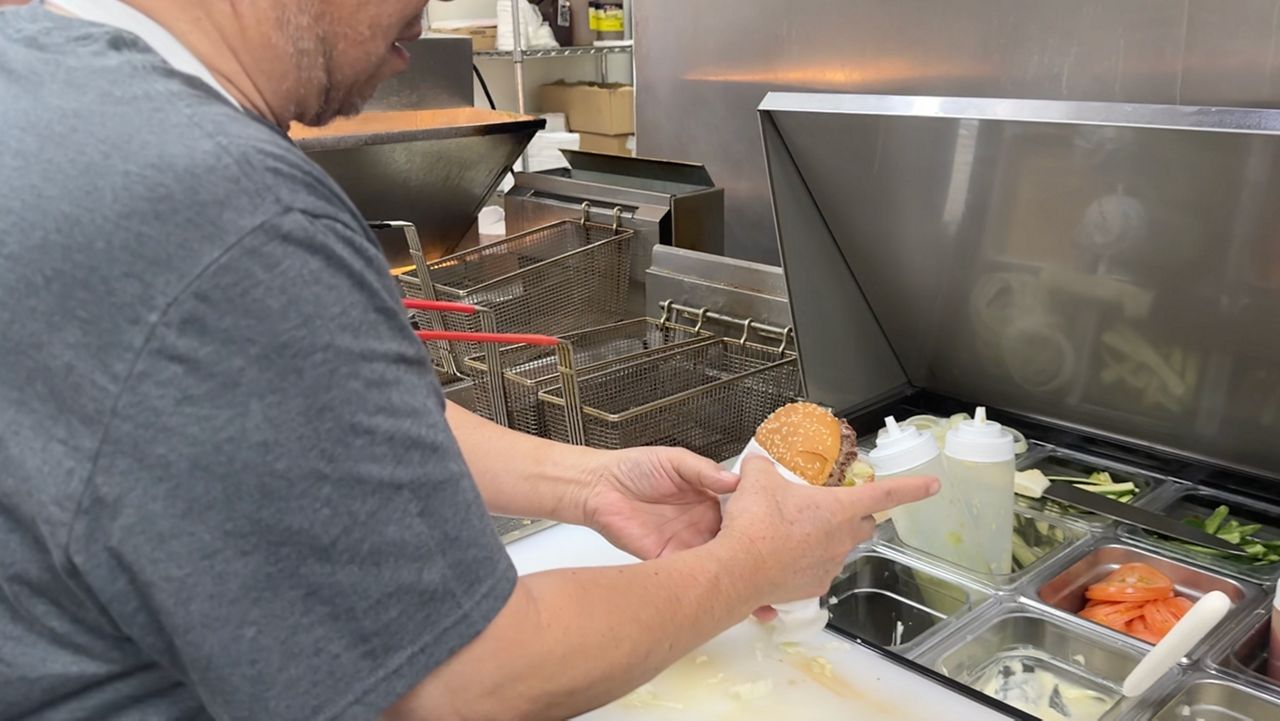LOS ANGELES — Los Angeles City Councilman Hugo Soto-Martinez introduced a motion Tuesday aimed at providing the city’s fast food workers with more stable scheduling and paid time off.
Soto-Martinez’s Fast Food Fair Work ordinance is intended to expand the city’s Fair Work Week ordinance, which was signed into law in 2022 and requires employers to give retail workers their schedules in advance. It covered some 2,500 large chain fast-food restaurants and about 50,000 workers.
The city’s existing regulations also require businesses to give workers at least 10 hours’ rest between shifts, or provide appropriate compensation.
The new proposal would establish mandatory six-hour paid training to educate workers on their rights, as well as provide fast-food workers an hour of paid time off for every 30 hours they work.
“What we’re introducing today is to bring respect to some of the folks who haven’t traditionally had it through our city laws,” Soto-Martinez said during a news conference outside City Hall.
The councilman’s proposal was met with push back from members of the Save Local Restaurants coalition, which includes restaurant owners, business groups and quick-service restaurant brands. The group says the proposal would threaten the viability of local restaurants and drive-up food costs for families already struggling.
“Nearly a decade ago, I opened my first Jersey Mike’s franchise to build a future for my family and leave a legacy and a strong business for my children. I’m worried it’s now in jeopardy,” Juancarlos Chacon, who owns nine Jersey Mike’s locations in Los Angeles, said in a statement. “Since the higher state minimum wage set in, I’ve had to raise my menu prices and cut employee hours to make ends meet.”
He added, “I cannot absorb any additional costs without drastic changes, including closing one or more of my restaurants. I hope the LA City Council rejects this very bad idea that will harm not just franchisees, but workers who will ultimately lose their jobs.”
Soto-Martinez said his proposal aims to give fast-food workers more time to enjoy their families and friends, and attend weddings, doctor’s appointments and other important moments. The California Fast Food Workers Union and Service Employees International union support the proposal.
“Too many don’t know our rights or where to go to report workplace violations,” said Jaylene Loubet, a McDonald’s worker and member of the California Fast Food Workers Union. “Too many of us can’t afford to have stable housing because of unpredictable scheduling ... Today — a pathway is about to open to bring change.”
The LA County Labor Federation also backed the proposal.
In 2023, Gov. Gavin Newsom signed AB 1228 into law, which created a statewide Fast Food Council and established a $20 per hour minimum raise for fast food workers. The law went into effect in April.
According to Soto-Martinez’s office, California’s fast food industry has gained roughly 10,600 new jobs as a result of the law.
Fast food businesses, however, have said that the law has forced them to raise the prices of menu items, and impacted their businesses.
“I cut back on employee hours by 10%, and I’ve been forced to raise prices to cope with the state minimum wage increase. I can’t absorb any more costs,” said Behzad (Ben) Salehi, who owns Blaze Pizza franchises in Northridge and Encino. “Unnecessary, costly and duplicative ordinances like these make small business owners hesitant to expand in the city of Los Angeles. Enough is enough. Stop attacking small business owners like us who create jobs and generate revenue for the city.”
Soto-Martinez’s proposal is expected to be heard by council committees before a final vote by the full City Council.



